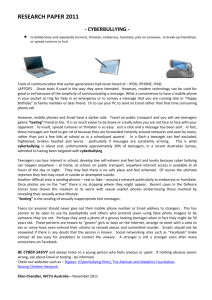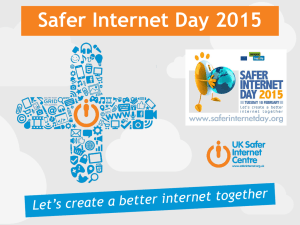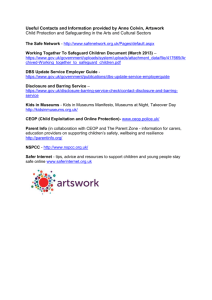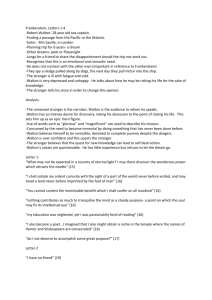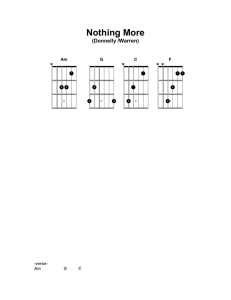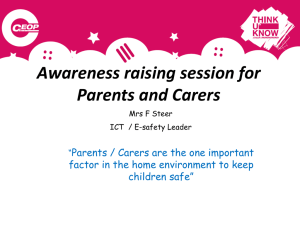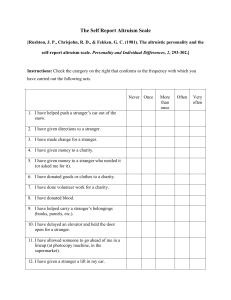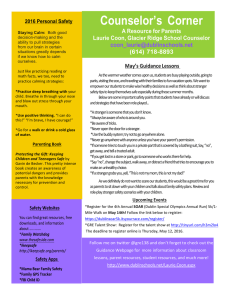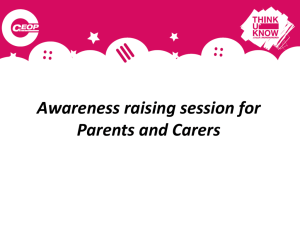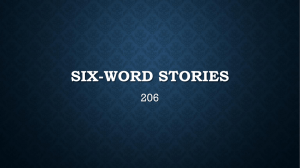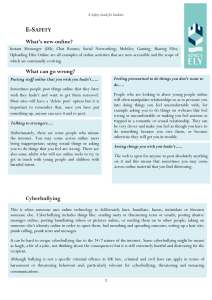Internet Safety - St Helens Council
advertisement
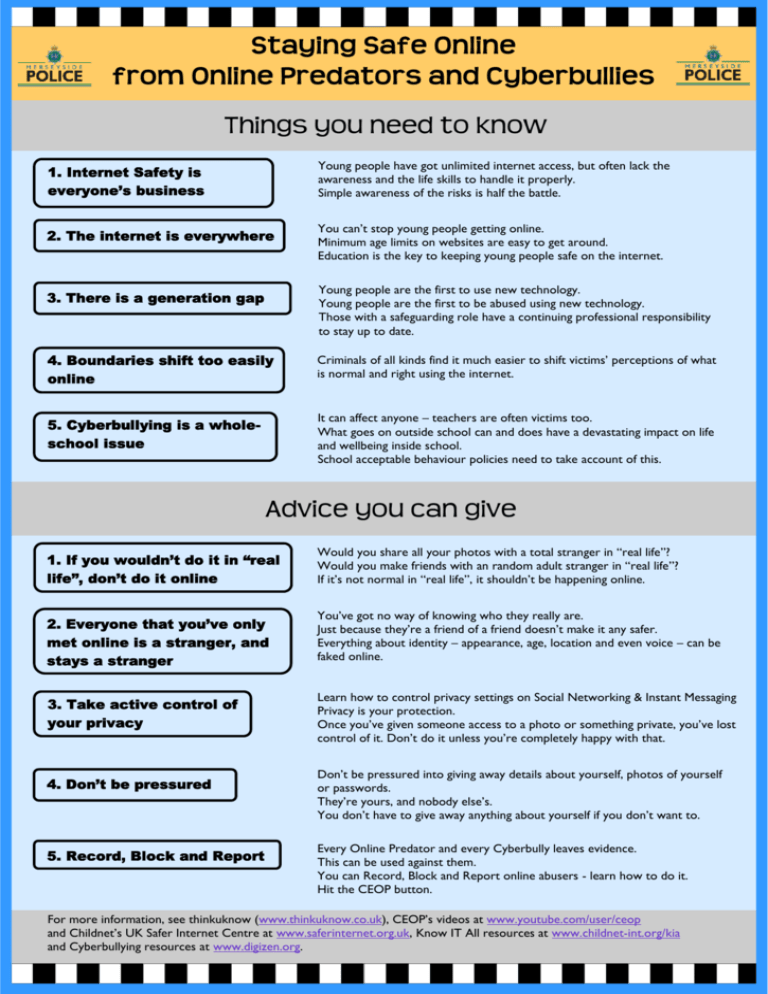
Staying Safe Online from Online Predators and Cyberbullies Things you need to know 1. Internet Safety is everyone’s business Young people have got unlimited internet access, but often lack the awareness and the life skills to handle it properly. Simple awareness of the risks is half the battle. 2. The internet is everywhere You can’t stop young people getting online. Minimum age limits on websites are easy to get around. Education is the key to keeping young people safe on the internet. 3. There is a generation gap Young people are the first to use new technology. Young people are the first to be abused using new technology. Those with a safeguarding role have a continuing professional responsibility to stay up to date. 4. Boundaries shift too easily online Criminals of all kinds find it much easier to shift victims’ perceptions of what is normal and right using the internet. 5. Cyberbullying is a wholeschool issue It can affect anyone – teachers are often victims too. What goes on outside school can and does have a devastating impact on life and wellbeing inside school. School acceptable behaviour policies need to take account of this. Advice you can give 1. If you wouldn’t do it in “real life”, don’t do it online Would you share all your photos with a total stranger in “real life”? Would you make friends with an random adult stranger in “real life”? If it’s not normal in “real life”, it shouldn’t be happening online. 2. Everyone that you’ve only met online is a stranger, and stays a stranger You’ve got no way of knowing who they really are. Just because they’re a friend of a friend doesn’t make it any safer. Everything about identity – appearance, age, location and even voice – can be faked online. 3. Take active control of your privacy Learn how to control privacy settings on Social Networking & Instant Messaging Privacy is your protection. Once you’ve given someone access to a photo or something private, you’ve lost control of it. Don’t do it unless you’re completely happy with that. 4. Don’t be pressured 5. Record, Block and Report Don’t be pressured into giving away details about yourself, photos of yourself or passwords. They’re yours, and nobody else’s. You don’t have to give away anything about yourself if you don’t want to. Every Online Predator and every Cyberbully leaves evidence. This can be used against them. You can Record, Block and Report online abusers - learn how to do it. Hit the CEOP button. For more information, see thinkuknow (www.thinkuknow.co.uk), CEOP’s videos at www.youtube.com/user/ceop and Childnet’s UK Safer Internet Centre at www.saferinternet.org.uk, Know IT All resources at www.childnet-int.org/kia and Cyberbullying resources at www.digizen.org.
